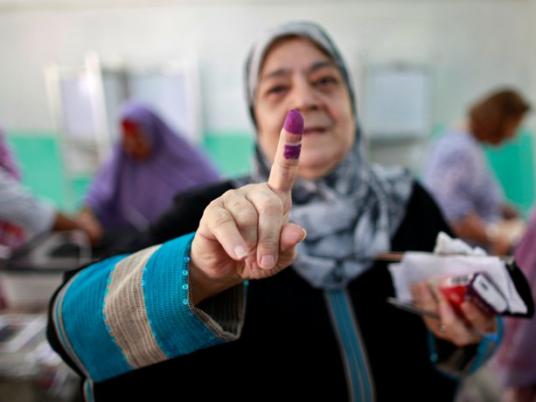A few months ago I was told by a well known media personality who works for Egyptian state television and radio that a leading member of the ruling National Democratic Party (NDP) had informed him about a government plan to place restrictions on satellite television and private newspapers. My contact advised me to write an article cautioning my colleagues about what to expect in the near future so that they may calculate their next steps carefully.
Since everything I heard was nothing more than hearsay and I didn't even have the name of the NDP source, the notes I took during the meeting ended up tucked away in my desk drawer. However, the recent clamp down on media has made me realize that the plan is coming true before my own eyes.
Over the past weeks, television media censorship has developed at an alarming rate. The Orbit Satellite Television Network has been shut down, opposition journalist Ibrahim Eissa had his TV program Bil Masri canceled, two shows hosted by sports broadcaster Alaa Sadek have been taken off the air, and the Badr television station has had its broadcasts halted.
There has also been a noticeable change in the tone, guests and topics on Egyptian satellite talk shows. Reports by executives close to TV station owners suggest that popular media personalities have been told to watch out because they are "next on the list".
All of these developments conform to the plan I was warned about, which includes:
1. Gradually limiting the freedoms of all talk shows and bringing them under state control until the end of the November parliamentary elections, while making it appear as if these changes are the result of financial or administrative failures rather than restrictions on freedom of speech and opinion.
2. Allowing more freedom of speech on state television talk shows so as to attract a bigger audience, pulling them away from satellite talk shows. State-run talk shows can then be used during the legislative and presidential elections to steer public opinion in a direction that best serves the government's interests.
3. Making inconspicuous changes to talk shows that serve the regime's overall objectives while preserving the shows' credibility. This will be achieved by warning owners and advertizers to play by the new rules, influencing hosts through flattery or intimidation, planting agents at privately-owned satellite stations to monitor show production, and having regime supporters call in to voice support for the government's policies.
4. Pressuring satellite news offices to ensure favorable coverage of the parliamentary elections. With the vote results already predetermined, the government’s remaining task is to control media coverage so as to hide instances of fraud and corruption. The same tactics used on state television channels will be employed on Arab satellite channels. As for Western media outlets, the authorities will likely attempt to restrict their ability to fully cover the elections.
5. Using bureaucratic and security tools to influence the editorial policies of private newspapers. Owners will likely come under pressure to encourage pro-government journalists and silence or dismiss anti-government critics who cannot be controlled. The departure of opposition figure Hamdi Qandil and novelist Alaa Al Aswany from the independant al-Shorouk newspaper is the first sign that such a trend is already in progress.
The recent cancellation of television programs, firing of writers and TV hosts and changes in the type of guests that appear on evening talk shows is a possible indication that the plan is working. Nevertheless, many factors can cause the plan to fail and, in the worst case scenario, Egyptians can abandon their independent press and go back to watching Al-Jazeera.
Translated from the Arabic Edition.




